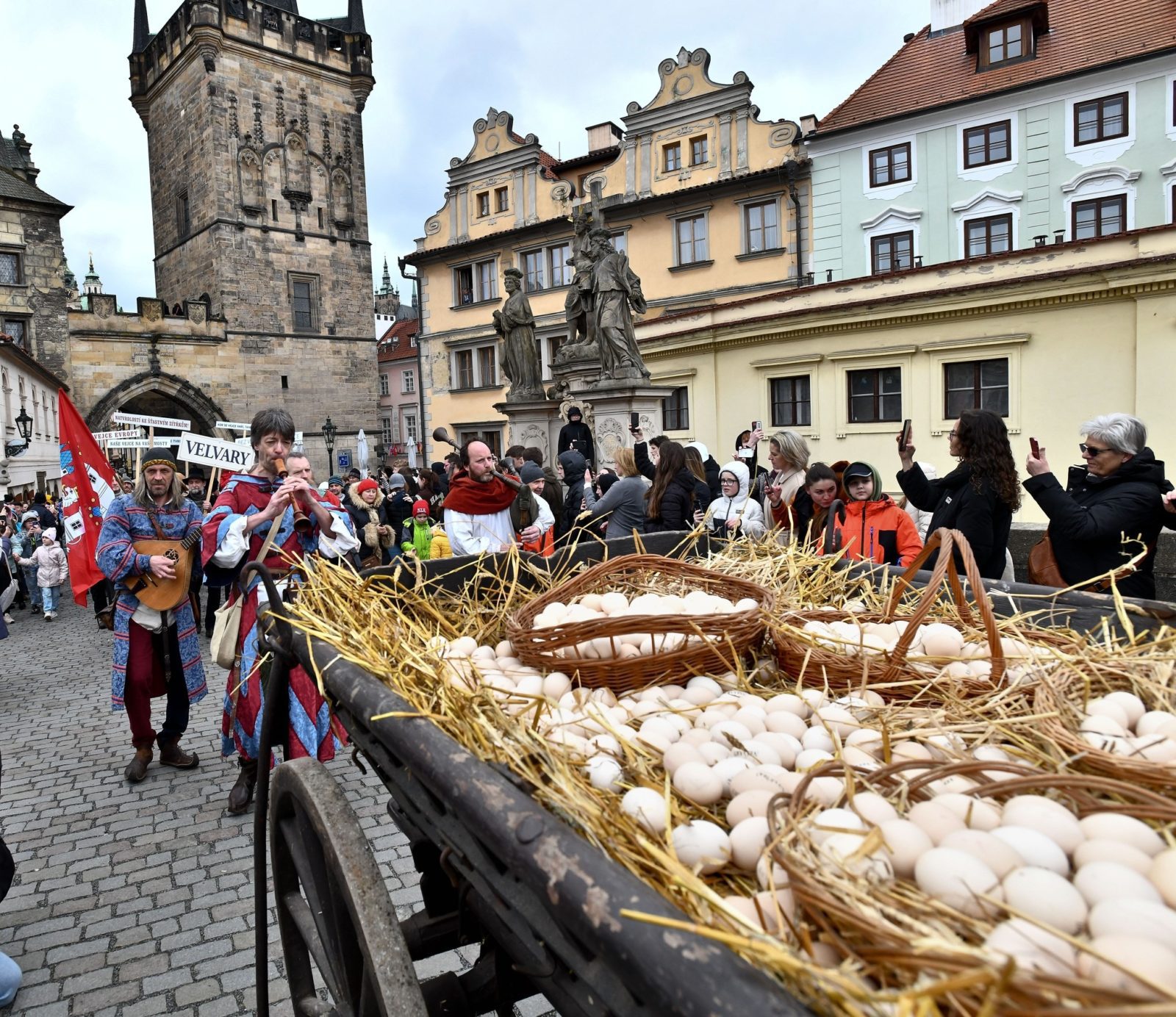On Sunday, April 2, a costume medieval procession called Vajíčkobraní took place on Charles Bridge in Prague, bringing to life one of the most famous legends associated with the construction of this well-known landmark.
Dressed up as peasants, musicians, and knights, the residents of the town of Velvary brought 450 boiled eggs to the capital, which were then ceremoniously presented to Prague Mayor Bohuslav Svoboda and handed out to the audience.
According to legend, the builders of Charles Bridge in the mid-14th century decided to add eggs, milk, and wine to the mortar for a stronger mixture. Since these products were scarce in Prague then, an order was given to collect them from all over the Czech Kingdom, and food caravans came to the city.
The people of Velvary also wanted to contribute but were worried that the eggs would break during the journey, so they boiled them. In turn, the people of the town of Ungelt brought not only milk but also curd and cheese. As a result, the builders and all Prague residents had a good laugh at the caring peasants.
In 2010, scientists from the Chemical-Technological University in Prague analyzed samples of blocks from Charles Bridge and found that eggs were not used in its construction.
The procession started at the Malá Strana Tower on the bridge at 1:00 pm. In addition to eggs, the participants carried banners with various humorous inscriptions, such as “Prague – the eggs of Europe,” “Our eggs for your bridges”, and “If you have hard-boiled eggs, your country is proud of you” (Máš-li vejce natvrdlá, vlast je na Tě hrdá) and others.
The current mayor of Velvary, Radim Volák, who founded a humorous public association called “Natvrdlí” in honor of the legend that made his city famous, also participated in the event.
“Previously, we were ridiculed for bringing boiled eggs. However, now we have turned this story into a worldview because we consider the ability to interpret various prescriptions from above in our way to be extremely important, especially in our time,” Volák said.





